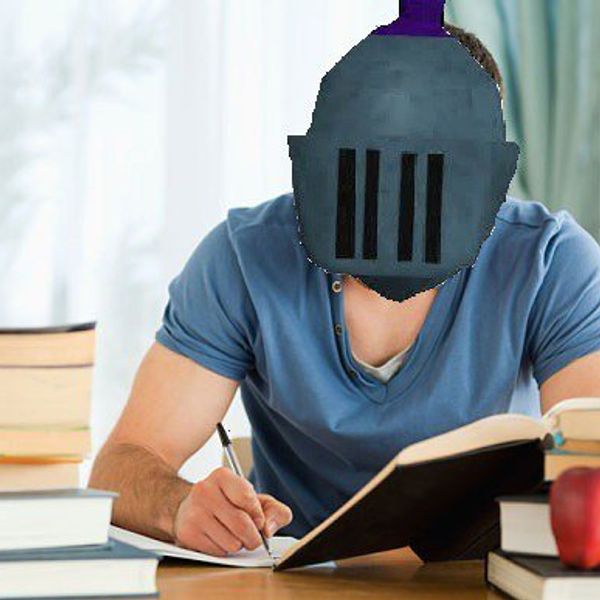When I first came here, I was an introverted and lonely freshman who had never really had many friends- and none of them had come with me to UD. Sure, I had met a few people in the first couple of days, and it was nice to not be the “token conservative” anymore.
The first friends I met here were made completely accidentally- I was wandering the cafeteria and stumbled across a group of people who at least seemed nice enough and looked like freshmen. I sat down with them awkwardly and said a few things until I eventually overheard them mention the first meeting of the Dungeons and Dragons club.
To this day, I don’t know where I first heard about D&D- but I had heard the rumors about it being satanic and immediately figured that they were nonsense. Still, I was surprised that a club for that game existed on campus, largely based on the inaccurate stereotype it had among right-wing religious people. In case you haven’t noticed, UD has a lot of those- and I’m including myself in that group.
To this day, I am still friends with the men and women I met at that lunch table- they turned out to be sophomores at the time, and seniors now. They have shown nothing but kindness to some lost freshman looking for a group of friends to have. They are some of the most kindhearted and friendly people that I’ve met, and most of them are devout Catholics.
To this day, I see no evidence that Dungeons and Dragons is any more satanic than the first book of Dante’s "Divine Comedy." Both have demons in them, and in neither the roleplaying game or the epic poem are they anything but antagonistic figures. Evil is completely objective in the game to the point where it starts to impact the game’s mechanics.
Let me make an analogy- you all know of the lord of the rings? It has magic, a dark lord who embody's evil, and human characters who commit various moral failings. No knowledgeable Catholic would say that J.R.R Tolkien was secretly advocating for injustice or vice in the lord of the rings because of how many evil characters he portrayed. The exact opposite is true- the work is an expertly done tale of the battle between good and evil.
Why am I writing this? To put it bluntly- we as Catholics cannot afford to tell others to stay away from things in this world that are actually harmless, as it discredits our warnings when we advocate against partaking in things that are actually sinful. I picked Dungeons and Dragons as the focus point for this article because it’s what I’m most familiar with (as I am the Vice President of our campus's club) and because it has a particularly notorious stereotype attached to it, but the argument remains the same for other things in modern culture that, while potentially associated with modern culture and all that comes with it, actually don't have anything bad in them on their own merits.
Still don’t believe me? Well then let me leave you with one last analogy: If someone were to seriously try to convince you that football was satanic, you would laugh at them because it quite clearly is nothing more than a fun game. Morality doesn’t even factor into it. You would think that person has no idea what they’re talking about, and would be less inclined to listen to their advice on any matter. Even if they warned you against things that were genuinely sinful and harmful later on.
If we tell others that Dungeons and Dragons- which if anything, can be used as ways to showcase the conflict between Virtue and Vice in an excellent way- is actually evil, then why should they believe us when we talk about things that are genuinely sinful? Even if we answer eloquently and with compassion on other issues, there are plenty of people who would love to use the Catholic Church’s supposed opinions on harmless matters as arguments why the rest of our moral code is laughable. Let’s not hand the enemy another tool to work with- they already have plenty of them.




















